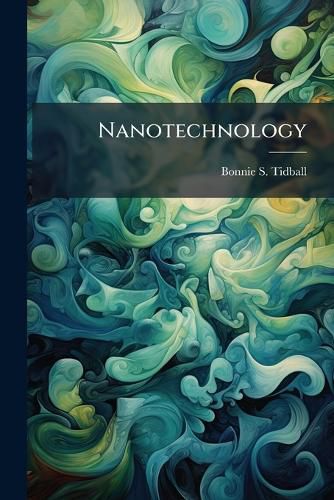Readings Newsletter
Become a Readings Member to make your shopping experience even easier.
Sign in or sign up for free!
You’re not far away from qualifying for FREE standard shipping within Australia
You’ve qualified for FREE standard shipping within Australia
The cart is loading…






Numerous technological changes have taken place in the last 50 years; many of them were considered science fiction in the twentieth century. Geoffrey Hunt and Michael Mehta said nanotechnologies are making the jump from science fiction to science reality.1 Popular science fiction author Michael Crichton has written two best seller novels that include a discussion of nanotechnology and future possibilities. Nanotechnology is actually a family of nanoscale technologies and is a swiftly rising field whose dynamics and forecast pose many challenges not only to scientists and engineers but also to society at large. This Nanotechnology covers a broad assortment of procedures and uses that will make some products better, cheaper, and faster, and it will enable the creation of products and applications that are currently beyond our ability to envision. Although many have called nanotechnology the next industrial revolution, much research needs to be done to ensure the future safety of the world and the human race due to the use of this revolutionary technology at the nanoscale.
This work has been selected by scholars as being culturally important, and is part of the knowledge base of civilization as we know it. This work was reproduced from the original artifact, and remains as true to the original work as possible. Therefore, you will see the original copyright references, library stamps (as most of these works have been housed in our most important libraries around the world), and other notations in the work.
This work is in the public domain in the United States of America, and possibly other nations. Within the United States, you may freely copy and distribute this work, as no entity (individual or corporate) has a copyright on the body of the work.
As a reproduction of a historical artifact, this work may contain missing or blurred pages, poor pictures, errant marks, etc. Scholars believe, and we concur, that this work is important enough to be preserved, reproduced, and made generally available to the public. We appreciate your support of the preservation process, and thank you for being an important part of keeping this knowledge alive and relevant.
$9.00 standard shipping within Australia
FREE standard shipping within Australia for orders over $100.00
Express & International shipping calculated at checkout
Numerous technological changes have taken place in the last 50 years; many of them were considered science fiction in the twentieth century. Geoffrey Hunt and Michael Mehta said nanotechnologies are making the jump from science fiction to science reality.1 Popular science fiction author Michael Crichton has written two best seller novels that include a discussion of nanotechnology and future possibilities. Nanotechnology is actually a family of nanoscale technologies and is a swiftly rising field whose dynamics and forecast pose many challenges not only to scientists and engineers but also to society at large. This Nanotechnology covers a broad assortment of procedures and uses that will make some products better, cheaper, and faster, and it will enable the creation of products and applications that are currently beyond our ability to envision. Although many have called nanotechnology the next industrial revolution, much research needs to be done to ensure the future safety of the world and the human race due to the use of this revolutionary technology at the nanoscale.
This work has been selected by scholars as being culturally important, and is part of the knowledge base of civilization as we know it. This work was reproduced from the original artifact, and remains as true to the original work as possible. Therefore, you will see the original copyright references, library stamps (as most of these works have been housed in our most important libraries around the world), and other notations in the work.
This work is in the public domain in the United States of America, and possibly other nations. Within the United States, you may freely copy and distribute this work, as no entity (individual or corporate) has a copyright on the body of the work.
As a reproduction of a historical artifact, this work may contain missing or blurred pages, poor pictures, errant marks, etc. Scholars believe, and we concur, that this work is important enough to be preserved, reproduced, and made generally available to the public. We appreciate your support of the preservation process, and thank you for being an important part of keeping this knowledge alive and relevant.